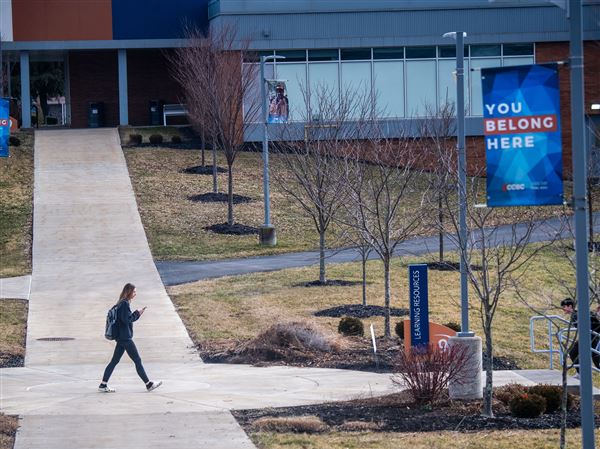The reaction is almost instinctive: When a person collapses, those nearby call 911. Someone might begin CPR while waiting for paramedics to arrive.
But what is the appropriate response when a family member, friend or co-worker shows signs of mental illness?
"Right now, most people don't know what to do," said Carol Frazer, director of care management for Pittsburgh Mercy Health System and a certified instructor of Mental Health First Aid.
:
A special five-part series
Overview and portrait of former Mayview State Hospital patients.
Monday, Sept. 23:
Community hospitals struggle with mental-health caseloads.
Tuesday. Sept. 24:
Police, courts improvise to manage ill offenders
Wednesday. Sept. 25:
Housing a weak link in mental-health system
Sunday, Sept. 29:
The future of mental-health treatment
The program, which originated in Australia, offers an overview of mental illness and gives pointers on how to help people in crisis. Organizers of the U.S. version, including the National Council for Behavioral Health, say they hope within the next decade to make the training as common as CPR and regular first aid.
Pittsburgh Mercy Health System, one of at least a handful of local organizations offering the 12-hour course, has provided it to parish nurses, social workers and other groups. Training is supported by Allegheny County and McAuley Ministries, an arm of Pittsburgh Mercy.
Participants watch videos of people explaining what it's like to live with mental illness and of actors simulating first aid interventions.
They learn how to recognize symptoms of depression, schizophrenia and other mental illnesses; how to assess a person's risk of self-injury or harming others; and how to calm a person who is suicidal, aggressive to others or experiencing psychosis. That includes a discussion of what's OK to say to a person in crisis (I am concerned about you) and which expressions are best avoided (Pull yourself together).
Sheila Beasley, director of family support outreach and communications for the University of Pittsburgh's Office of Child Development, took the course in May. She also arranged for representatives of many of the 25 family-support programs to take it.
"It was the right decision on so many levels," Ms. Beasley said, noting program workers now know how and where to direct troubled clients for mental-health care.
Instructors cite the impact of mental illness on the workplace and cover some of the factors -- genetics, substance abuse, environmental issues and physical-health problems -- that can trigger psychiatric problems. "We're all at risk," Ms. Frazer said.
For more about the training, contact Mark Rogalsky, unit manager in Pittsburgh Mercy's Prevention Services Division, at 412-320-2321 or mrogalsky@pmhs.org.
First Published: September 23, 2013, 8:00 a.m.

















